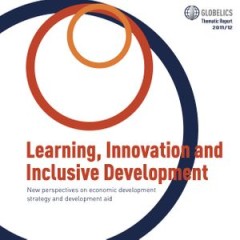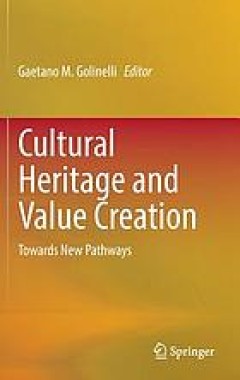Filter by

Learning, Innovation and Inclusive Development
In August 2011 the Globelics Secretariat was formed at Aalborg University with the support of the Swedish Development Agency (SIDA). BengtÅke Lundvall serves as the General Secretary while Björn Johnson, Birgitte Gregersen, Rasmus Lema and Allan Dahl Andersen are part-time employed in the Secretariat. The administrative coordination is taken care of by Dorte Baymler and Gro Stengaard Villumse…
- Edition
- -
- ISBN/ISSN
- 9788771120585
- Collation
- -
- Series Title
- -
- Call Number
- 370 LEA

Law School Materials for Success
The first year of law school is, for many people, one of the most significant transitions of their adult life. Law school demands a lot as it helps you make the transition from your prior identity as student (or as some other occupational role) to your new identity as an attorney. To meet the demands of law school, it is often helpful to have the big picture before you begin – a sense of what…
- Edition
- -
- ISBN/ISSN
- -
- Collation
- -
- Series Title
- -
- Call Number
- 340 FIN l

Cultural impact on lean Six sigma and corporate success : Causal Analyses Co…
To achieve a better understanding of the influence of National Culture, Corporate Culture and Leadership Style on Lean Six Sigma implementation and Corporate Success a quantitative empirical web-based survey with Lean Six Sigma professionals involved in the social professional network LinkedIn was carried out by Miriam Jacobs. The outcome of this survey suggests, that certain constellations of …
- Edition
- 1
- ISBN/ISSN
- 9783658073404
- Collation
- XXVIII, 320
- Series Title
- Forum Marketing
- Call Number
- 338.71

Cultural hybridity and the environment : strategies to celebrate local and In…
This book highlights the importance of diversity in overcoming issues of social and environmental degradation. It presents conceptual and practical strategies to celebrate local and Indigenous knowledge for improved community development and environmental management. David Harvey has proclaimed, "The geography we make must be a peoples' geography." This clarion call challenges geographers aroun…
- Edition
- 1
- ISBN/ISSN
- 9789812873231
- Collation
- XIX, 215
- Series Title
- -
- Call Number
- 338

The Jewish Unions in America : Pages of History and Memories
"Newly arrived in New York in 1882 from Tsarist Russia, the sixteen-year-old Bernard Weinstein discovered an America in which unionism, socialism, and anarchism were very much in the air. He found a home in the tenements of New York and for the next fifty years he devoted his life to the struggles of fellow Jewish workers. The Jewish Unions in America blends memoir and history to chronicle this…
- Edition
- -
- ISBN/ISSN
- 9781783743551
- Collation
- -
- Series Title
- -
- Call Number
- 305 WEI j

Cultural heritage and value creation : towards new pathways
Informed by systems thinking, this book explores new perspectives in which culture and management are harmoniously integrated and cultural heritage is interpreted both as an essential part of the social and economic context and as an expression of community identity. The combination of a multidisciplinary approach, methodological rigor and reference to robust empirical findings in the fertile f…
- Edition
- 1
- ISBN/ISSN
- 9783319085272
- Collation
- XI, 188
- Series Title
- -
- Call Number
- 363.69

Cultivating Knowledge Promoting Research to Enrich Everyday Practice
Over the last decade or two, there has been increasing consensus that academic research, if used judiciously to guide practice, improves both educational policy and pedagogy ultimately leading to better outcomes for students. Yet, despite this potential, there remains a deep ravine between the body of knowledge built through research especially at the intersection between specific interventions…
- Edition
- 1
- ISBN/ISSN
- 9789463006033
- Collation
- XII, 456
- Series Title
- -
- Call Number
- 370

Countering 21st Century Social-Environmental Threats to Growing Global Popula…
This book brings together in a single volume a grand overview of solutions - political, economic, and scientific - to social and environmental problems that are related to the growth of human populations in areas that can least cope with them now. Through progressive adaptation to social and environmental changes projected for the future, including population growth, global warming/climate chan…
- Edition
- 1
- ISBN/ISSN
- 9781322138077
- Collation
- XV, 164
- Series Title
- SpringerBriefs in Environmental Science
- Call Number
- 330

Cost-of-Capital in Managerial Finance An Examination of Practices in the Germ…
This book examines cost-of-capital models and their application in the context of managerial finance. This includes the use of hurdle rates in capital allocation decisions, as well as target returns in performance management. Besides a review of classical finance models such as the Capital Asset Pricing Model (CAPM), other contemporary models and techniques to determine the cost-of-capital of b…
- Edition
- 1
- ISBN/ISSN
- 9783319151359
- Collation
- XII, 245
- Series Title
- Contributions to Management Science
- Call Number
- 330

Informing Energy and Climate Policies Using Energy Systems Models Insights f…
This book highlights how energy-system models are used to underpin and support energy and climate mitigation policy decisions at national, multi-country and global levels. It brings together, for the first time in one volume, a range of methodological approaches and case studies of good modeling practice on a national and international scale from the IEA-ETSAP energy technology initiative. It p…
- Edition
- -
- ISBN/ISSN
- 978-3-319-16539-4
- Collation
- XIV, 426
- Series Title
- -
- Call Number
- 330 INF
 Computer Science, Information & General Works
Computer Science, Information & General Works  Philosophy & Psychology
Philosophy & Psychology  Religion
Religion  Social Sciences
Social Sciences  Language
Language  Pure Science
Pure Science  Applied Sciences
Applied Sciences  Art & Recreation
Art & Recreation  Literature
Literature  History & Geography
History & Geography